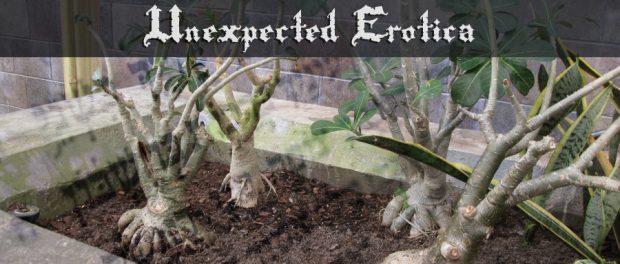Fragrant Mandrakes

17Song of Songs 7:13a
- KJV: The mandrakes give a smell
- NIV: The mandrakes send out their fragrance,
- NASB: The mandrakes have given forth fragrance;
Given what we’ve seen in the sexual symbolism of the garden during this marriage’s first consummation in 4:16-5:1 and the lead-up in 4:12-15, the import of the imagery in 7:12 is not lost on us. Here they go again…
There’s nothing quite as profound as the horniness of newlyweds in love.
Yet verse 13 introduces a fruit missing from the list of erotic symbols we saw last time the couple did the nasty: the mandrake.
I did some research into the idea of screaming mandrake roots, and apparently it’s substantiated by ancient lore (albeit not science, of course). The root of the mandrake even vaguely resembles the human form with limbs.
Personally, I have little experience with mandrakes. I don’t know if I’ve ever seen one in person. I certainly wouldn’t be able to pick one out of a lineup (unless of course, the lineup was: ’57 Chevy, monkey, the number seven, mandrake, and an iPad showing a photo of a mandrake).
It may reveal a bit of my nerdiness to admit the word always brings to mind the greenhouse scene in the Harry Potter _series wherein squealing “mandrakes” were uprooted and transplanted. I did some research after seeing that scene into the occult origins of the idea of screaming mandrake roots, and apparently it’s substantiated by ancient lore (albeit not science, of course). The root of the mandrake even vaguely resembles the human form with limbs, which is interesting. But this lore is much younger than the Song of Songs. So what’s the significance of this _truly ancient reference?
The only other time the mandrake is mentioned in the Bible is in Genesis 30, a story of the love and jealousy Rachel and Leah faced over their mutual husband Jacob. And interestingly, that particular anecdote ended in sex as well, albeit in a roundabout, awkward way — likely the only way sex could happen in a polygamist arrangement. I shudder to think of trying to keep two women happy; why any man would want to do that to himself is beyond me. Admittedly Jacob had a marginally better reason for his situation than other polygamists in the Bible (he was set up and forced into it). Still I much prefer the relative simplicity (if it can ever be called simple) of monogamy. But I digress…
It turns out the mandrake has long been considered an aphrodisiac by the peoples of the Near East. It’s even called the love apple by some. With its potent aroma — which fits in with the other strong-smelling contents of her “garden” listed previously — this is more of what we’d seen back in 4:16 where she desires for her fragrance to draw him in.
So, no, it’s not a random fruit picked by an author trying to fill space. It’s a God-inspired sexual metaphor. Pretty much like the rest of the Song’s contents.
Originally posted 2017-07-17 08:00:55.


Leave a Reply